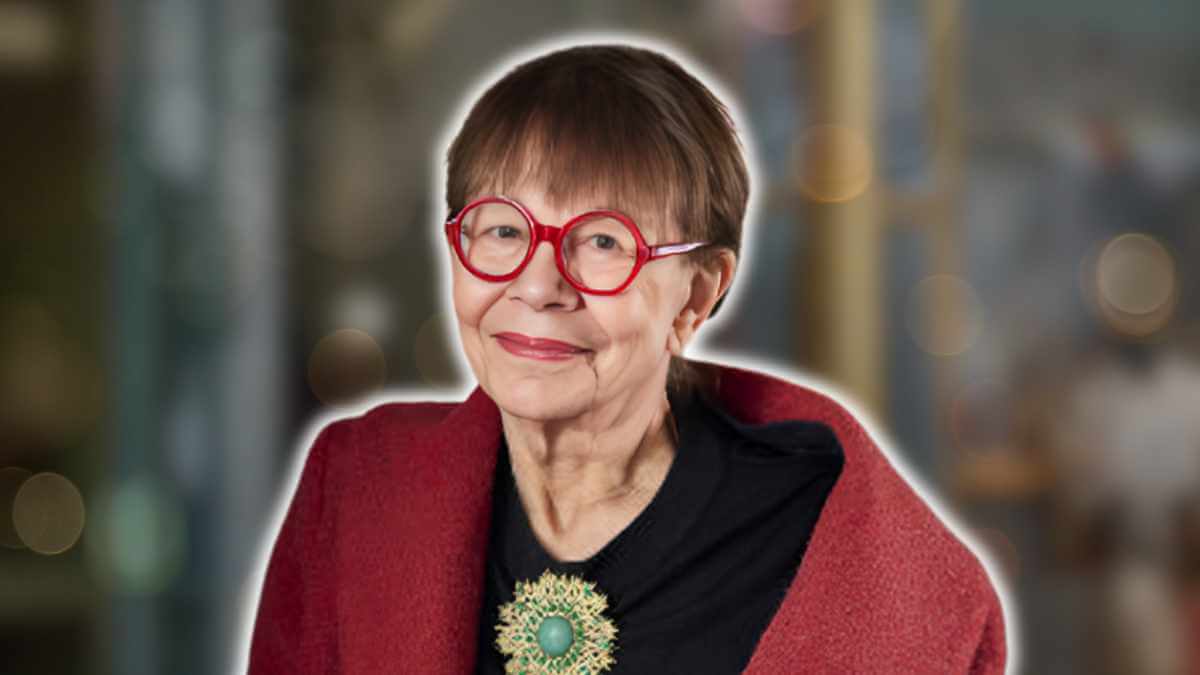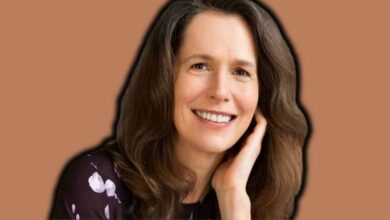Virginia Ironside: A Life in Words, Advice, and Cultural Commentary Introduction

Virginia Ironside is a name that resonates deeply within British journalism and literature. Known for her sharp wit, compassionate advice, and unique ability to blend humour with serious commentary, she has established herself as one of the UK’s most enduring “agony aunts” and a novelist of considerable talent. Over the decades, Ironside has written not only advice columns for leading newspapers and magazines but also novels, diaries, and non-fiction works that explore human nature, relationships, ageing, and self-discovery.
Early Life and Background
Virginia Ironside was born on 3 February 1944 in London into a family already steeped in creativity. Her father, Christopher Ironside, was a renowned artist and coin designer, remembered particularly for designing the reverse of Britain’s first decimal coins. Her mother, Janey Ironside, was an influential figure in fashion, being the first professor of fashion at the Royal College of Art. Growing up in such a household exposed Virginia to art, design, and cultural conversation from an early age.
The backdrop of post-war London shaped her formative years. A society undergoing rapid transformation, with new freedoms for women, emerging youth culture, and shifting family structures, offered fertile ground for an observant writer. It is perhaps unsurprising that Virginia developed both a satirical edge and a compassionate understanding of human dilemmas.
Career Beginnings: Journalism and the 1960s
Virginia’s career began in the 1960s when she worked as a rock columnist, covering the explosion of popular music and the changing cultural landscape. This was an era of experimentation and rebellion, and her writing captured the mood of the times. Young readers, particularly women, found in her columns an honest and often witty perspective that was both entertaining and reassuring.
Unlike many of her contemporaries, Virginia Ironside did not confine herself to traditional reporting. She embraced the confessional and conversational tone that would later define her career as an agony aunt. This ability to speak directly to readers, treating them as equals rather than a faceless audience, marked her as a distinctive voice in British media.
Becoming the “Agony Aunt”
The role of agony aunt is one of Britain’s most fascinating journalistic traditions, providing personal advice in print on issues ranging from love and marriage to grief and depression. Virginia Ironside became one of the best-known agony aunts of her generation, succeeding legendary figures like Marje Proops.
She wrote the “Dilemmas” column for The Independent from the early 1990s, where her replies were often a mixture of humour, realism, and deep empathy. Her style was never preachy; instead, she offered guidance that felt practical and humane. Today, she continues this role with The Oldie, where her advice is geared toward older readers but remains accessible to all ages.
Her approach challenged the assumption that agony aunts should sugar-coat advice. Instead, she was direct, even blunt when necessary, while still maintaining a sense of kindness. This balance between honesty and compassion is one of the reasons she has remained trusted by generations of readers.
The Novelist: Marie Sharp and Beyond
Virginia Ironside is also celebrated as a novelist, particularly for her series of books featuring the character Marie Sharp. These humorous diaries chart the life of a woman navigating middle and later age, with titles such as No! I Don’t Want to Join a Book Club, No! I Don’t Need Reading Glasses!, and Yes! I Can Manage, Thank You!
The novels are funny, sharply observed, and resonate with readers who see themselves in Marie’s anxieties and triumphs. Ageing, relationships, friendships, and independence are explored with honesty, but never without laughter. Through Marie Sharp, Virginia managed to capture the realities of growing older in modern Britain, giving voice to experiences often overlooked or treated with gloom.
Her fiction stands out because it refuses to sentimentalise or trivialise. Instead, it highlights the dignity and humour that can be found in later life, making her novels both comforting and empowering.
Other Writings and Contributions
Beyond her diaries and novels, Virginia has written over twenty books, covering topics from relationships and family life to self-help and personal growth. Early in her career, she wrote Chelsea Bird (1964), which demonstrated her skill as a novelist even in her twenties. Later works ventured into non-fiction, reflecting her curiosity about the complexities of human behaviour.
She has also been a regular voice on radio and television, where her quick wit and straightforward style translate effortlessly into broadcast formats. Whether discussing personal dilemmas or broader cultural issues, she maintains an ability to speak with clarity and confidence.
Themes in Her Work
Across her career, several themes recur in Virginia Ironside’s work:
-
Ageing with dignity: She has consistently challenged stereotypes about ageing, writing with humour and pride about growing older.
-
Honesty in relationships: Whether discussing marriage, parenting, or friendships, she avoids clichés and instead confronts the messy truths of human bonds.
-
Mental health and resilience: Her agony aunt work often deals with depression, grief, and anxiety, where she encourages resilience while acknowledging pain.
-
Humour as survival: Perhaps most importantly, she treats humour as a tool not for trivialising but for surviving life’s challenges.
These themes not only define her writing but also help explain why readers continue to find her relevant.
Influence and Legacy
Virginia Ironside has played a key role in shaping modern British advice writing. Her longevity in journalism is testament to her adaptability and the trust she has built with readers. She has demonstrated that advice columns are more than light entertainment: they can provide genuine guidance, empathy, and even therapy.
Her novels, particularly the Marie Sharp diaries, have contributed to the growing body of literature that treats ageing not as decline but as a stage of life filled with richness, challenges, and humour. In doing so, she has helped to reshape cultural narratives around women and ageing.
Generations of readers have written to her, not only to ask for advice but to thank her for her candour and companionship. That relationship between writer and reader is perhaps her greatest legacy.
Personal Style and Public Persona
Virginia Ironside is often described as witty, warm, and unflinchingly honest. She has not shied away from controversy; her views on topics such as parenting and euthanasia have sparked debate. Yet even when controversial, her arguments are grounded in compassion and a willingness to discuss difficult truths.
Her style of writing—direct, conversational, and sprinkled with humour—has made her accessible to readers from different walks of life. She does not rely on jargon or over-intellectualised commentary; instead, she communicates as if in conversation with a friend, which is the essence of her enduring appeal.
Why Virginia Ironside Matters Today
In an age where advice is everywhere—from influencers to automated chatbots—Virginia Ironside stands out as a human voice that combines wisdom with lived experience. She reminds readers that ageing can be embraced, that relationships require honesty, and that life’s dilemmas can be faced with courage and humour.
Her continued presence in print and public life provides continuity in a rapidly changing media landscape. For younger readers, she offers an example of how to face adulthood with integrity. For older readers, she offers solidarity and humour in navigating later years.
Virginia Ironside matters because she bridges generations, showing that the search for advice, empathy, and laughter is universal.
Conclusion
Virginia Ironside’s career is a testament to the power of words to connect, console, and inspire. From her early days as a rock journalist to her current role as an acclaimed agony aunt and novelist, she has consistently championed honesty, humour, and humanity. Her writings—whether in columns, novels, or non-fiction—have given voice to the dilemmas, anxieties, and joys of everyday life.
By capturing the complexities of ageing, the realities of relationships, and the importance of laughter, she has earned her place as one of Britain’s most beloved and respected writers. The name Virginia Ironside represents not only a career in journalism and literature but also a continuing conversation with readers who, decade after decade, trust her to guide them through life’s dilemmas with wisdom and wit.



